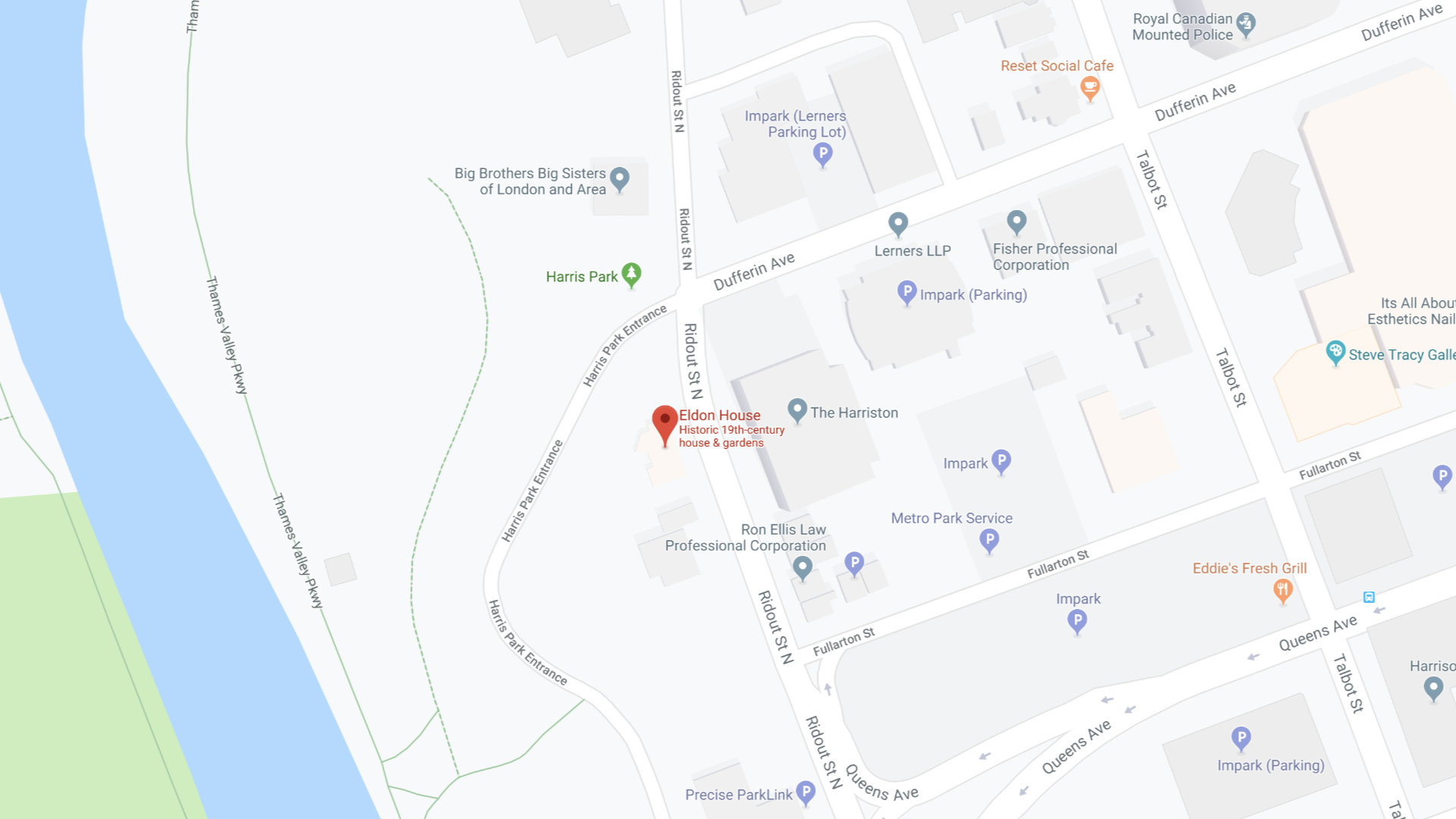481 Ridout Street North
London, Ontario, Canada N6A 2P6
519.661.5169 | info@eldonhouse.ca
Current Hours:
October:
Wednesday-Sunday
12:00 • 5:00 PM
Admission:
Admission to Eldon House is by donation with a recommended donation of $5.00-$10.00 a person, except for special events.
